
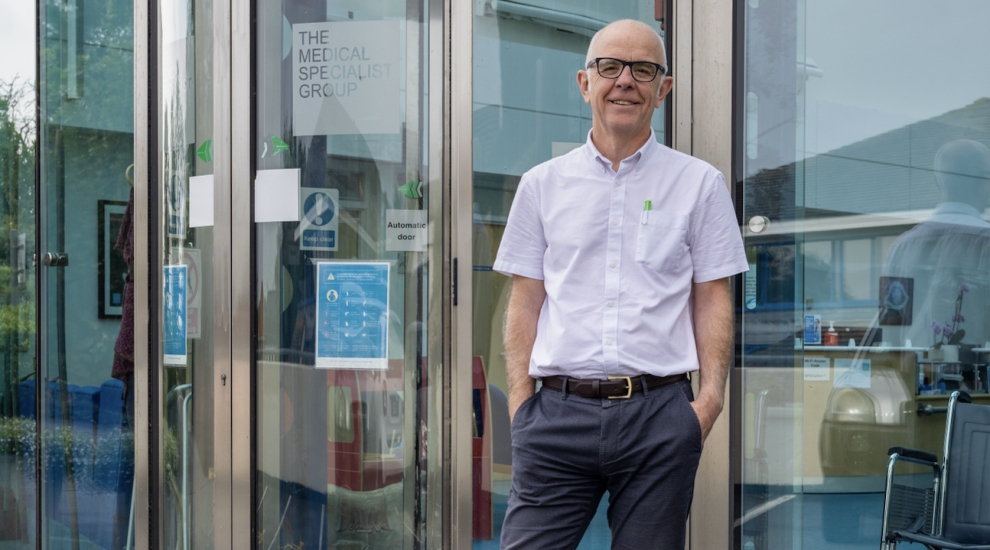

Taking on the role of Chairman of the Medical Specialist Group on an interim basis last year means Steve Evans has been central to talks on the future of the hospital redevelopment (he is in favour), building more houses for key workers (he is in favour) and contract negotiations between the MSG and the States.
More coy on the latter topic than others, Dr Evans said “the price review is exactly what it says. I don't think there's going to be major changes in the services that are provided. It's just as with everything, things develop and some bits of service have moved from us to HSC and staff have moved...”.
Asked how the negotiations are going he answered “reasonably well” but moving on to how well the States – through the Committee for Health and Social Care - and the MSG, along with independent third parties like the GP practices and the Guernsey Therapy Group all work together – he assured us we’re in a much better position than our nearby neighbours.
"I think we do work together very well,” he summarised.
“When you consider the difficulties that the NHS is in, we're not perfect by any means, we've got waiting lists, and a lot of that is still because of the covid pandemic and we're trying to catch up, but I think we are doing well.
"Our waits in A&E are relatively low and, OK our waiting list for orthopaedics and gastro are longer than we'd like, but we're working hard to reduce them both.”
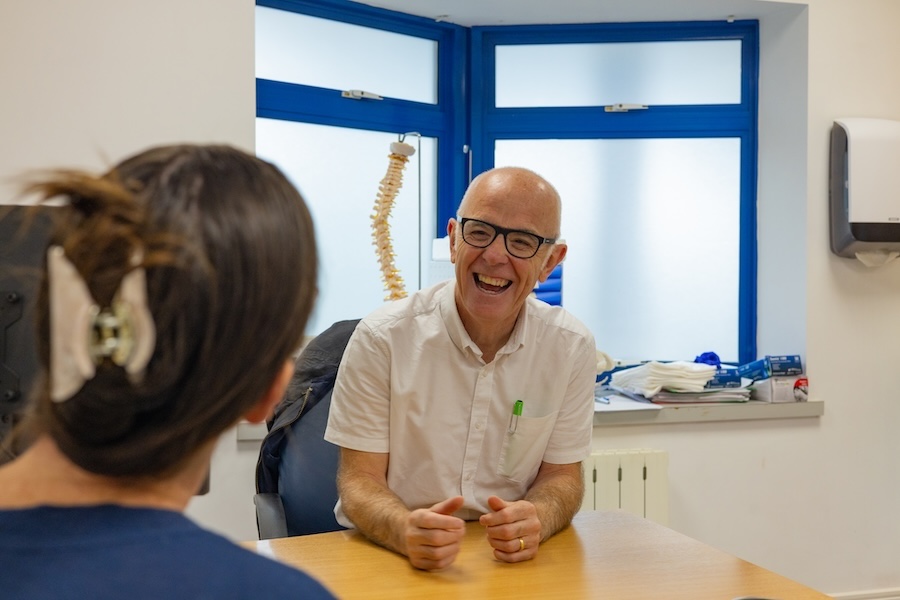
Pictured: Dr Steve Evans.
Waiting lists for patients needing orthopaedic and gastroenterology surgeries are not just localised problems Dr Evans said, with outside challenges impacting recruitment and surgery progress here.
"The bulk of it is covid related because we lost theatre sessions because they were aerosol generating procedures. And there's risks if you had covid recently to go to theatre. So when we were focusing on the pandemic, there was less active work and the waiting list was chopped up then and obviously we're adding people all the time, so you're running to catch up but we’ve still got that bulge that happened during the covid pandemic.”
The situation remains frustrating for patients and staff, with Dr Evans appreciating it is worse for the patients.
"I think patients do understand that we're doing the best that we can to reduce our waiting lists. I think that some of them are frustrated with long waits. If you're in pain and you've got limited mobility because you need a hip or a knee replacement, then it's understandable that you're going to get frustrated. But I think all we can do is try and reassure people that we're dealing with it and trying to deal with it as quickly as we can.”
Those good intentions are often shelved when emergencies occur and the waiting lists have to be re-ordered again.
"If there are emergencies or things change, then we'll review the situation and the waiting list. It's not like picking up a counter at the deli counter and, you're number 37, and that's how long you wait.
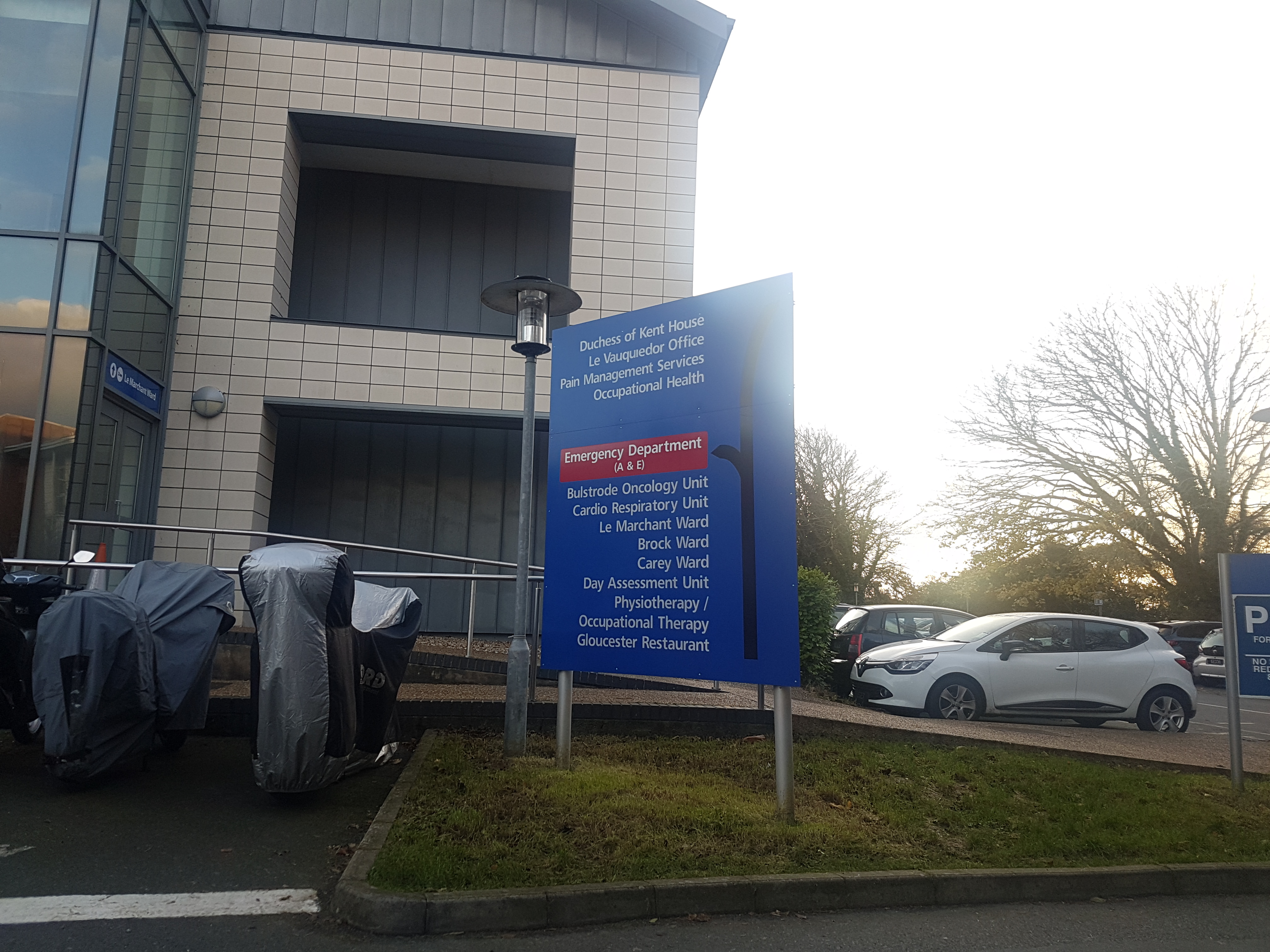
Pictured: The PEH.
"We realise that things can change, pain can get worse, mobility can deteriorate for orthopaedic patients, so there are review processes built in.
"I think all we can do is try and reassure people that we're trying to deal with it as quickly as we can.”
Aside from waiting lists, Dr Evans is facing challenges in recruitment.
Like every other sector, recruitment to health roles are problematic with housing shortages in Guernsey and the ongoing impact of Brexit both leading to a shortage of applicants.
Dr Evans said this is being tackled in new ways, with recruiters playing a long game to ensure they’re aware of the best talent years before they may be fully trained and ready to take on consultancy roles.
"Gastro and orthopaedics are constantly in the media for waiting list reasons, but the other challenges that we have and I think that's the same for medicine all over really is recruitment. If you look at recruitment in the NHS, there are significant numbers of vacant posts, and lots of adverts are not getting any applicants at all.
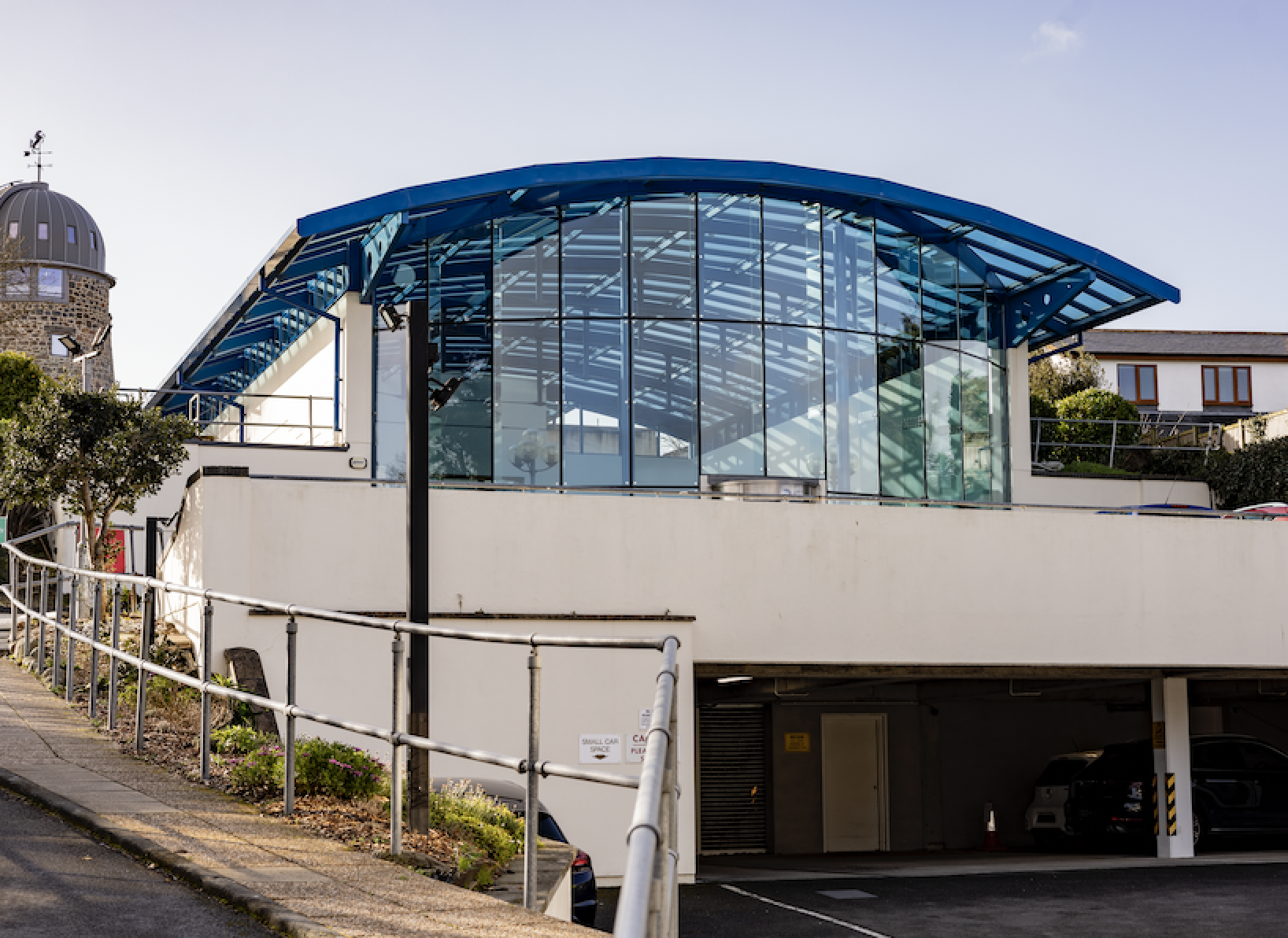
Pictured: The MSG.
"We've had vacancies in gastro for about 18 months now, but we've been lucky that we've been able to recruit a locum. So while the continuity of care may not be there we have provided a service and we're lucky enough to have doctor at the moment. He's a long-term locum so even though we haven't got somebody in a substantive post, we're in a position to provide services.
“And the thing that's worried people is because we haven't announced we've made a permanent appointment that we're not providing the service and we are providing the service, it’s just not with the same doctor. Dr Barzani is here till December at least, and hopefully a lot longer.”
Dr Evans said shortages don’t just affect the clinical staff with vacancies "from the specialists down across the board.
"Even if we were fully staffed with doctors, if we're short of nurses, short of cleaners, then the hospital doesn't run.
"It's like an F1 team. You've got a driver and a pit crew and we can't do stuff if the pit crew – our equivalent of the pit crew - aren’t there. I think people need to recognise that it's a massive team that provides health care. There's a lot of people in the background to get theatre equipment clean, to make sure that people get to where they need to be if they're inpatient.
“It's a massive team, and we need every team member there to make health care efficient.”
If every role at the MSG or in wider health care services was full there would still be the issue of where all those key workers would live and that is something the MSG has been working with the Guernsey Housing Association to resolve by agreeing terms for the latter to buy land owned by the former.
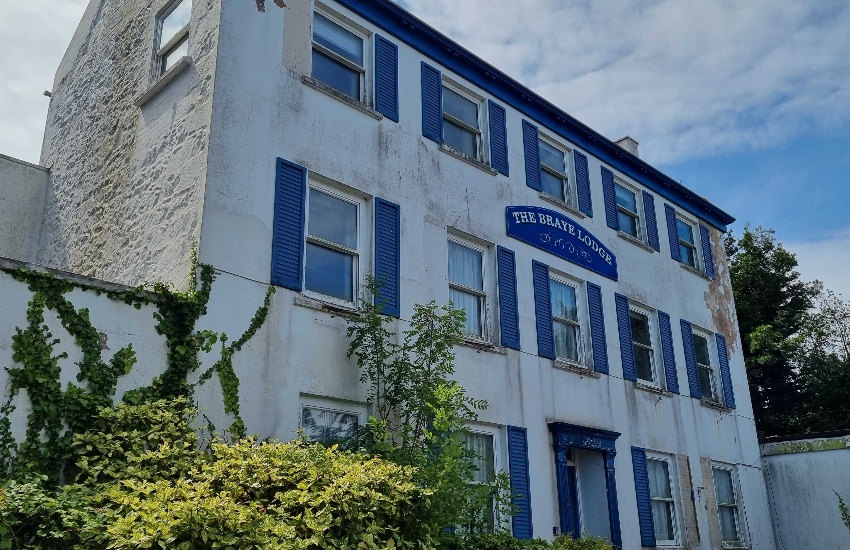
Pictured: The Brave Lodge site.
“We bought the Braye Lodge site and we weren't sure what we were going to do with the site. We needed the parking. So, in essence, it was bought to secure the parking, and we looked into whether we could develop a medical facility on site, but because of planning restrictions, that wasn't going to happen.
"There was little point in hanging on to it and the GHA were interested. And it’s an ideal location for key worker housing. If you're talking about hospital staff, it's close enough to walk, but far enough that you're off site. I’ve lived on site in the past and it makes a massive difference to be able to walk away from the site at the end of the day. So I think it's ideal, to be able to walk away from the hospital at the end of the day just psychologically, and it's going to be a 10-minute walk max so that could be an added bonus, just the location of it.”
We’ll be waiting a few years before we see that land redeveloped into modern housing units with planning permission needed before any work can start.
The island’s largest building firm is tied up in contracts with the hospital site but that is all under a question mark with the States having to watch expenditure more closely than ever.
“I think Phase 2 is essential for providing health care for the island,” said Dr Evans simply.

Pictured: Phase 1 of the hospital development is still underway.
"There's been a lot of time and effort into discussing how we're going to provide acute health care services over the next 20 or 25 years and we're at capacity. One of the limits is the intensive care space, and in Phase 2 there's going to be more theatres, a bigger intensive care space, and I think that's going to be important for our throughput.
"We've recruited doctors recently who have said that the fact that the hospital was being developed was one of the reasons why they came. I think it's not just working in an environment that's new, and it's always nice to have a new environment, but I think it shows that there's a commitment to future health care.
“I think if you're doubting whether the government is committed to providing an appropriate environment for care, then you have to wonder what their other commitments to health care are going to be like. So I think it's It has a massive impact on morale across the board, not just for doctors, but for nurses, and anything we can do to improve recruitment.”
Looking at the big picture across recruitment, Dr Evans said the way that is planned has changed enormously over the course of his career.
"When I was looking for my first consultants job, you looked in the British Medical journal and that was about it. But now it's much more active. We're actively looking people out, and there's more done on social media, whether it be LinkedIn or through our Facebook site or whatever.
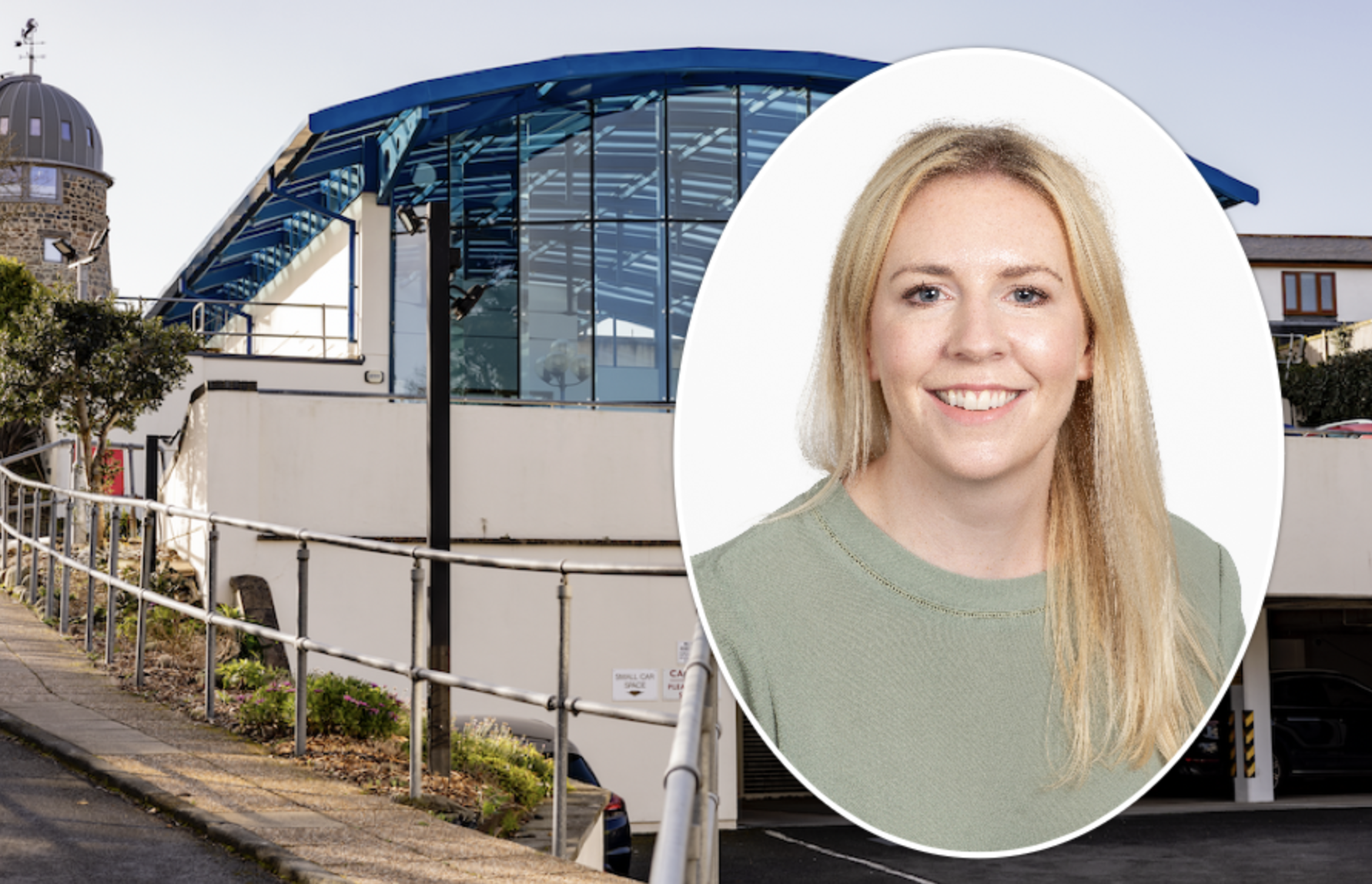
Pictured: Dr Ruth Copeland recently moved back to Guernsey to take on a role at the MSG.
"So medicine, despite the fact that it's a conservative profession with a small c, is actually moving somewhat into the 21st century. And I think we get graduates coming through that are digital natives. But things are going to change again, and we just need to try and keep abreast of those changes
"You've got five or six years in med school. You've got potentially 8, 9 or 10 years of postgraduate training because we don't have junior doctors here, it's a consultant provided service. So, bringing doctors back is different.
“Although we are slowly building up a cohort of locals, I think three or four of our last appointments have been locals that have come back to the island.
“Our new consultant, Ruth Copeland saw me at a conference six or seven years ago and said, ‘have you got any jobs?’ and I said ‘we will have’.
“That’s exciting for us. And we're in the process of setting up links between students and junior doctors that have got links to Guernsey. We're trying to build those links to try and improve recruitment, but a lot of it is word of mouth.”
https://online.fliphtml5.com/ktlu/fcne/#p=60
States buy Braye Lodge site from MSG for healthcare housing
"It makes a massive difference to be able to walk away from the site at the end of the day"
Comments
Comments on this story express the views of the commentator only, not Bailiwick Publishing. We are unable to guarantee the accuracy of any of those comments.